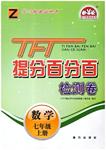【题目】“I want to move, but I need to have a job in the new city first.” “I’ll follow my passion, as soon as I have enough money in the bank.”
Over and over I hear my clients_______________ their dreams before the dreams are even fully imagined. Seemingly undefeatable road blocks destroy all hope. They have lost ________ they have even begun to play the game.
Dreams are just wishes if you do not take action. Receiving your dream life _________ with movement. Big or small doesn’t_________, as long as it is movement.
Life is like a board game. Roll the dice( 骰子). Move forward. Act on__________ that come your
way. Roll again. Move a few steps forward. Move a few steps__________ . Not everything needs to be
_______before you get started. You only need to know which way you are _________, not the whole picture, to begin moving.
When my husband and I moved to Mexico last year, everyone thought we had taken one big step. My husband was very rooted back in Illinois. The thought of leaving was not___________for him. Then he was provided with a job in another city. He did not take the _________ at first, but in exploring it as another choice, we knew we were both ready to make a _______.
_________ we moved toward our dream even when we didn't know what the ________would be. We took large and small risks to continue our forward movement. We said yes to our first trip to Cabo. We said yes to exploring the job in another city. Saying no to either would have blocked our dream. We supported each other__________ the unknown and celebrated the__________ opportunities which came our way.
What is your dream? What is the one little step you can take today to start you down your
path?
【1】A. stick with B. wake from C. give up D. keep alive
【2】A. when B. before C. since D. until
【3】A. agrees B. does C. meets D. begins
【4】A. matter B. differ C. affect D. exist
【5】A. dice B. chances C. movements D. plans
【6】A. up B. back C. down D. ahead
【7】A. in power B. in time C. in place D. in detail
【8】A. headed B. pushed C. trapped D. made
【9】A. tough B. anxious C. easy D. sudden
【10】A. place B. advice C. advantage D. offer
【11】A. request B. change C. point D. living
【12】A. On and on B. Again and again C. Step by step D. One by one
【13】A. direction B. destination C. result D. process
【14】A. during B. into C. around D. through
【15】A. intended B. unexpected C. wasted D. missed

 提分百分百检测卷系列答案
提分百分百检测卷系列答案 宝贝计划期末冲刺夺100分系列答案
宝贝计划期末冲刺夺100分系列答案 能考试全能100分系列答案
能考试全能100分系列答案